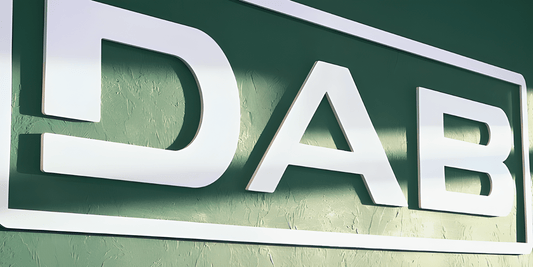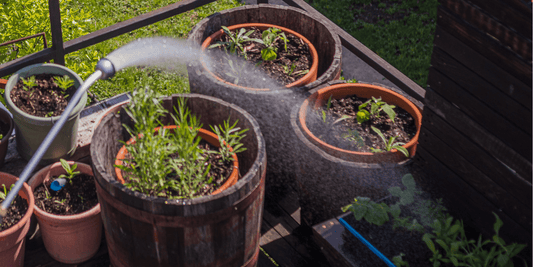
What is The Right Water Pressure Level?
Share
Whether you’re a homeowner trying to get the best out of your shower or a business owner wanting to ensure smooth operations in your commercial property, understanding water pressure is key. We've seen first hand how crucial the right water pressure is, it’s not just about comfort, it's about efficiency, equipment longevity, and even safety.
Let's discuss how to find that sweet spot when it comes to water pressure, why it matters, and how it differs between residential and commercial applications.
What Exactly is Water Pressure?
Let’s clear up what water pressure actually is. Simply put, it’s the force at which water flows through your pipes. Think of it as how hard water is pushed out of your taps, showers, or any water outlet.
Water pressure is usually measured in pounds per square inch (psi) or bar. One bar roughly equals 14.5 psi, and in the UK, we tend to use bar more commonly.

Why Does Getting the Right Water Pressure Matter?
If the water pressure is too low, you’ll be stuck with weak taps, slow-filling baths, or poor performance in appliances like washing machines or dishwashers. It can also frustrate employees or customers if you run a business.
If the pressure is too high, you risk damaging your plumbing, causing leaks, or wasting water and energy. High pressure can also put stress on appliances and reduce their lifespan.
What’s the Ideal Water Pressure?
For residential properties, a good water pressure typically ranges between 1 and 3 bar. Most homes aim for around 2.5 bar. This is enough for a strong shower and quick filling of kettles and baths without causing wear and tear on the system.
For commercial applications, it gets more complex. Typically, commercial water pressure ranges from 2 to 4 bar, but larger facilities or multi-storey buildings might require pressure boosting systems to maintain consistent flow.

How to Check Your Water Pressure
You don’t need to be a plumber to check your water pressure.
- Get a pressure gauge. These are widely available at hardware shops or online. Simply screw it onto an outdoor tap or a washing machine valve, turn on the water, and read the pressure.
- Contact your water supplier. They can often provide information on the pressure supplied to your area.
- Look out for signs. Low pressure might mean slow taps or cold water coming out slower than expected. High pressure could be noisy pipes or dripping taps even when turned off.
How to Adjust Water Pressure
If your water pressure is off, here try these solutions:
- Pressure reducing valve (PRV). This device helps control and lower water pressure to safe levels. It’s ideal if your pressure is too high.
- Pressure booster pump. If your pressure is too low, especially in large buildings or homes far from the mains supply, a booster pump can give your water the kick it needs.
- Check for leaks or blockages. Sometimes pressure issues are caused by leaks or pipe blockages rather than supply issues.
- Upgrade old plumbing. Aging pipes can reduce pressure. Replacing them can often restore good flow.

Residential Water Pressure
For most homeowners, the main concerns are comfort and efficiency. If your shower feels more like a drizzle, chances are your pressure is below ideal.
Some tips:
- Showerheads and taps. Installing modern, efficient fixtures can improve your water experience without cranking up the pressure.
- Check your home’s plumbing. If your home is older, pipe size and material may limit pressure.
- Be mindful of multiple outlets. Running several taps or appliances simultaneously can reduce pressure.
If you’re considering adding things like garden irrigation systems or outdoor taps, make sure your pressure supports these without draining your indoor supply.
Commercial Water Pressure
In commercial settings, water pressure isn’t just about comfort. It’s about operational efficiency and compliance.
- Multi-storey buildings. Water pressure naturally drops the higher you go. You may need pressure boosters or tanks to ensure consistent supply across floors.
- Specialised equipment. Commercial kitchens, laundries, or car washes often require specific pressure ranges to operate correctly.
- Water saving and sustainability. Balancing pressure with conservation efforts can reduce bills and environmental impact.
- Regulatory compliance. Certain industries must meet standards around water pressure and flow, particularly in healthcare and food services.
Work closely with water engineers or consultants to design systems that fit their specific needs, ensuring equipment longevity and customer satisfaction.

Final Thoughts
Finding the right water pressure might sound like a niche plumbing detail, but it’s one of those fundamentals that can make a huge difference both at home and in business.
If you’re a homeowner, take a moment to check your pressure. It might just improve your daily routines with little effort.
For business leaders, investing in the right water pressure setup can save money, improve service quality, and help meet regulatory demands.
And if you ever feel stuck, don’t hesitate to reach out to a water professional who can assess your system and recommend tailored solutions.



